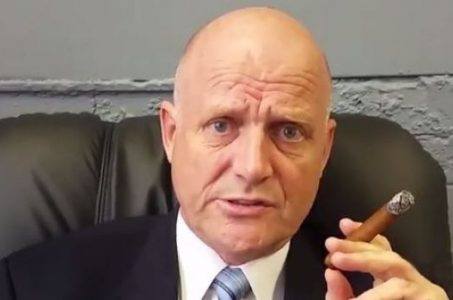Czech Court Rules Online Gambling ISP Blocking is Constitutional
Posted on: February 27, 2017, 06:00h.
Last updated on: February 27, 2017, 07:37h.
The Czech Constitutional Court has ruled controversial provisions within the country’s new gambling act, which demand ISP blocking of unlicensed online gambling sites, to be legal and constitutional.

Andrej Babis’s controversial ISP-blocking policy does not amount to censorship, according to the Czech Constitutional Court. (Image: Express.cz)
The act, signed into law in July by President Miloš Zeman, and effective from January 1, 2017, requires any operator wishing to offer its services to Czech citizens to apply for a domestic license. But the regulatory framework is unwelcoming to operators and the tax regime punishing, and by design.
Andrej Babis, the billionaire finance minister and populist deputy prime minister, who has been called the “Czech Donald Trump,” is no fan of online gaming and would rather it did not exist at all.
But since the government is required to allow free cross-border trade under EU law, he has ensured reforms are deliberately restrictive. It’s estimated that Czechs gamble some $6 billion a year on the black market.
Anonymous Attack
The bill allows authorities to enforce ISPs to block all websites listed on a blacklist maintained by the Ministry of Finance and ISPs face administrative sanction if they fail to do so.
ISP-blocking is a controversial and draws criticism the ISPs themselves, who consider it difficult and technically impractical, as well as from net neutrality and anti-censorship groups.
Last year, “hacktivist” collective Anonymous launched a cyber-attack on Babis’ business interests in response to his perceived assault on the principle of an open internet.
But the court was with Babis on this one. Its judgment had been requested by a group of senators who questioned whether the ISP-blocking provisions were in conflict with the constitutional prohibition of censorship.
They also argued that ISPs should not be required to bear responsibility for the failure of offshore operators to gain Czech licenses for their operations.
ISP Blocking “Not Censorship”
But the court found that prohibition of censorship had not been violated, because, according to lexology.com, “the purpose of the contested provisions is not to control or restrict freedom of information or expression, but to prevent illegal activities on the Internet.”
Meanwhile, the transfer of responsibility from unlicensed operators to ISPs was constitutional, because “while unlicensed operators usually operate from abroad, and so effective regulatory enforcement against them is difficult, the ISPs are easily approachable by authorities and they have the means to fulfill the task.”
ISP blocking was “likely the only effective, although not perfect, solution,” the court ruled.
The court also noted that numerous EU member states have introduced some form of a blocking system, citing Belgium, Bulgaria, Denmark, Estonia, France, Italy, Lithuania, Latvia, Hungary, Portugal, Romania, Greece, Slovenia and Spain.
Related News Articles
Aussie Politician on Online Poker: “Screw the Government, Get a VPN”
National Governors Association Warns AG Jeff Sessions Over RAWA
Most Popular
Genovese Capo Sentenced for Illegal Gambling on Long Island
NBA Referees Expose Sports Betting Abuse Following Steve Kerr Meltdown
UPDATE: Former Resorts World & MGM Grand Prez Loses Gaming License
VEGAS MYTHS RE-BUSTED: The Traveling Welcome to Las Vegas Sign
Most Commented
-
UPDATE: Whiskey Pete’s Casino Near Las Vegas Closes
— December 20, 2024 — 33 Comments -
Caesars Virginia in Danville Now Accepting Hotel Room Reservations
— November 27, 2024 — 9 Comments -
UPDATE: Former Resorts World & MGM Grand Prez Loses Gaming License
— December 19, 2024 — 8 Comments -
FTC: Casino Resort Fees Must Be Included in Upfront Hotel Rates
— December 17, 2024 — 7 Comments
















No comments yet